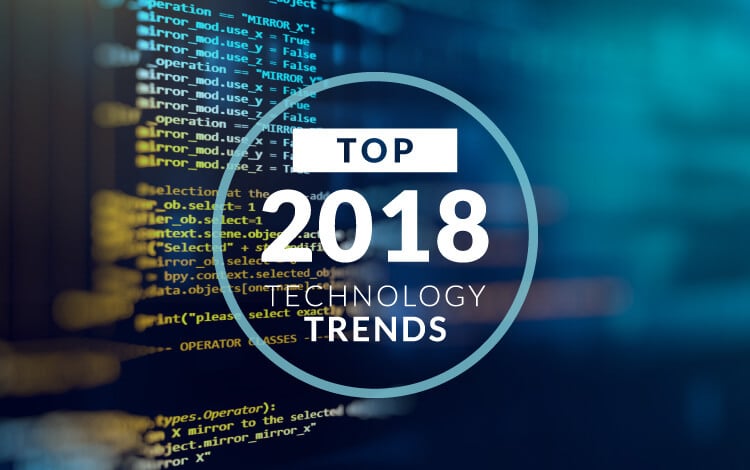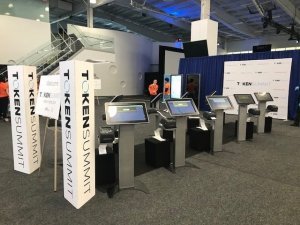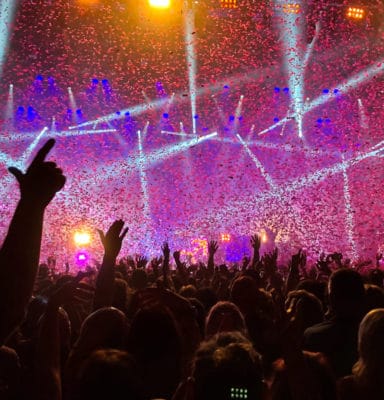
Earlier this year, we gave you the rundown on must-have technology trends for 2018. Now we have the benefit of hindsight to identify the top trends that have been the most popular at events around the country. Technology such as touchscreen displays and video walls have now become the norm, and are being joined by newer solutions that have been more widely and effectively used during the past 12 months. Let’s take a look at what worked in 2018, and how you can implement trending technology to bring even greater impact to future events.
Event Management Technology

This past year, we’ve seen an uptick in the use of event management software that automates manual planning tasks such as budget tracking, performance measurement, attendee engagement enhancement, registration management, and data transfer. More organizations are taking advantage of the win-win process of delivering a branded, user-friendly registration and check-in experience to attendees, while simplifying data capture, badge generation, and other back-office functions that once consumed a great deal of planning time and resources.
Facial Recognition
Facial recognition is one trend that could easily end up on a list of technology failures. That’s because only the most advanced facial recognition software actually works. One thing to keep in mind is the larger the database, the less accurate the system. Therefore, a show with 10,000 attendees will have a higher accuracy rate than a show with 100,000 attendees. You should have staff members on hand to intervene if someone is incorrectly identified as another attendee. The system can also be hindered by attendees (about half) who fail to upload their photo during online registration. When choosing a software provider, opt for a company that specializes in events, as the right partner can help you to reduce the time and costs involved in check-in and make your event more interactive, engaging, and secure.
Chatbots and AI

With Amazon Alexa and Google Home together occupying millions of households, it’s no wonder attendees have come to look for similar chatbots at events. As 2018progressed, we saw apps that use artificial intelligence, or AI, become more useful and powerful at business events. In the best scenarios, AI was used to enhance business processes and ultimately increase revenue through highly personalized engagement. In addition to automating customer service by generating instantaneous answers to attendee questions, planners implemented chatbots to provide show attendees with customized recommendations of people to meet, sessions to attend, or products to check out based on their social media profiles. You can expect AI to continue to evolve in exciting ways to create more meaningful interactions between show sponsors, exhibitors, and attendees in the years to come.
Multi-Purpose Event Apps
Properly planned and implemented event apps have proven to be an invaluable tool. The best apps are multipurpose, meaning they help planners to manage invitations and registration while also helping attendees keep track of event schedules and live engagement. Event apps that integrate with social media are gaining traction, as are smart networking features for B2B apps. Of course, there have been instances of ill-fated apps that didn’t accomplish what they were supposed to, and good apps that have crashed because they weren’t equipped to handle the volume of attendees. So organizers are cautioned to make sure they implement the right app for their event.
With any form of event technology, so much depends on setup and support. Planners should always perform due diligence in hiring a technology provider with the expertise to ensure the reliable and powerful performance of their products and services. For advice on how you can effectively incorporate the latest technology at your event, contact the experts at SmartSource Rentals.

